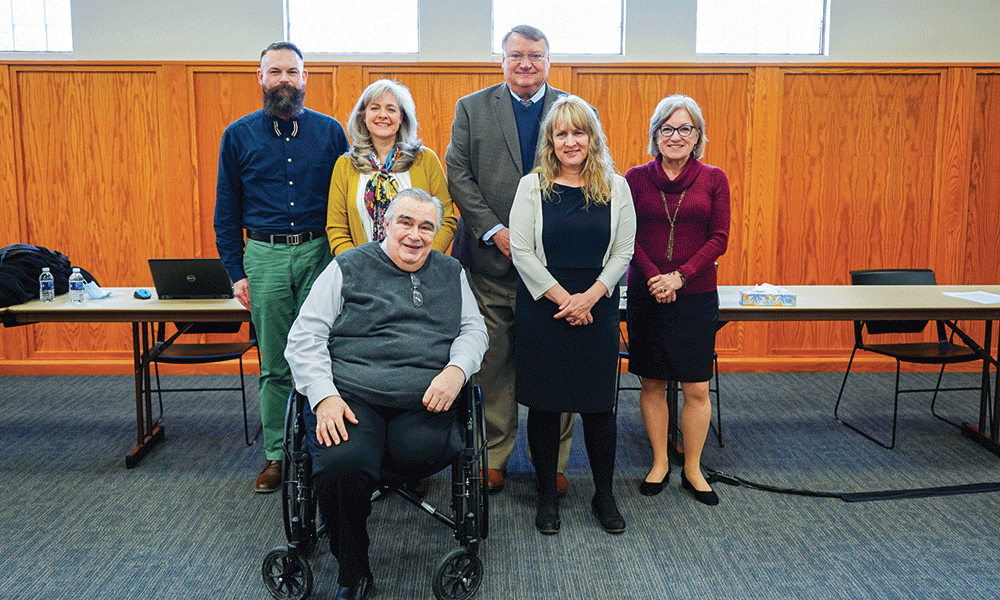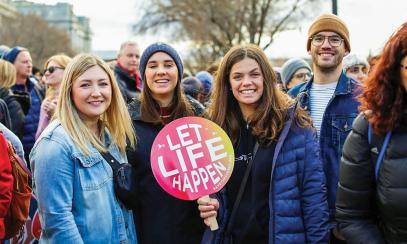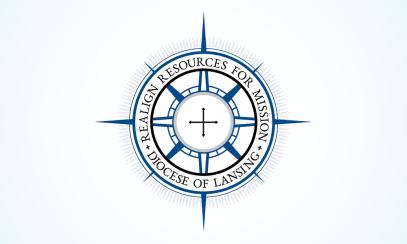
Therese and others volunteer their time to the diocesan Code of Conduct Advisory Council
Looking back, Therese now sees that God had plans to use an open door in her life in a way she never expected. “My husband and I had been working on cutting back the number of hours we worked - I was thinking we’d be far less busy.” Yet God had something in mind for Therese’s newfound time: An invitation to put her experience and gifts to use for the good of the Church and the world: “I didn’t think when I scaled back my hours as a professional counselor that I’d be making space for the advisory council.”
The diocesan Code of Conduct Advisory Council, one of a handful of such councils nationwide, is a lay board entrusted with assisting Bishop Earl Boyea in assessing allegations of clerical misconduct.
Therese explains, “In 2019, Bishop Earl Boyea made a bold step that should be noted in establishing this advisory council. This is a one-of-a-kind lay group that is tasked with advising the bishop on complaints of clergy misconduct. In 2002, the U.S. Bishops met to establish protections to be provided to children by the Church. One of the areas that was overlooked then was the protection of adults. Of course that looks or may look different than how a child might be mistreated, but it’s still necessary.
“When I first considered if I’d interview for this volunteer position, I thought of our call to use our time, talent and treasure. I thought I didn’t have much more treasure but I did have the time, and, in my unlikely field, I had the talent. So here I was, ready to retire, driving to Lansing to be interviewed. Two weeks later, I got a letter inviting me to be on the council and then was asked by the bishop to be the chairperson for it.”
By the time Therese said “yes,” God had opened the door for others to contribute their time and talent, too. “The advisory council is made up of me and six other smart, faith-filled Catholic lay people. We come from different careers and parishes and lives, yet our commonality is our love for God and love for the Church. If we can help, we’re happy to do it.
“What the bishop asks us to do is to bring our professional skills plus our faith to help with transparency in dealing with issues of clergy misconduct. We have simply an advisory capacity, we have no formal standing in the Church. The diocese brings us complaints and allegations of wrongdoing. If needed, they hire an investigator. We read all the evidence, and after we discuss the case, bringing our expertise, we pass along our recommendations and also advise the bishop of help the victim may need.
“I think they named the group aptly – advisory. We can process, analyze and come to a common opinion, advising Bishop Boyea and then understanding and knowing the bishop has other guidelines he needs to abide by. It’s made all of us more appreciative of the work Bishop Boyea and his staff do.”
In addition to their tri-annual meetings, the council commits to prayer. “In general, our job is to pray for the diocese and the Church as a whole. We pray for the innocent, for the victims, and for the priests facing allegations – for all of them to know the depth and breadth of God’s love for them – that he would bring healing. Prayer is an important part of what we do.”
And as for giving her time and talents to better the Church and the world? Therese is grateful for the opportunity. “It is very humbling and very rewarding. It is great to feel like the little I have I can bring to the Church, and perhaps God will use it to aid in his work of healing and restoration.”



